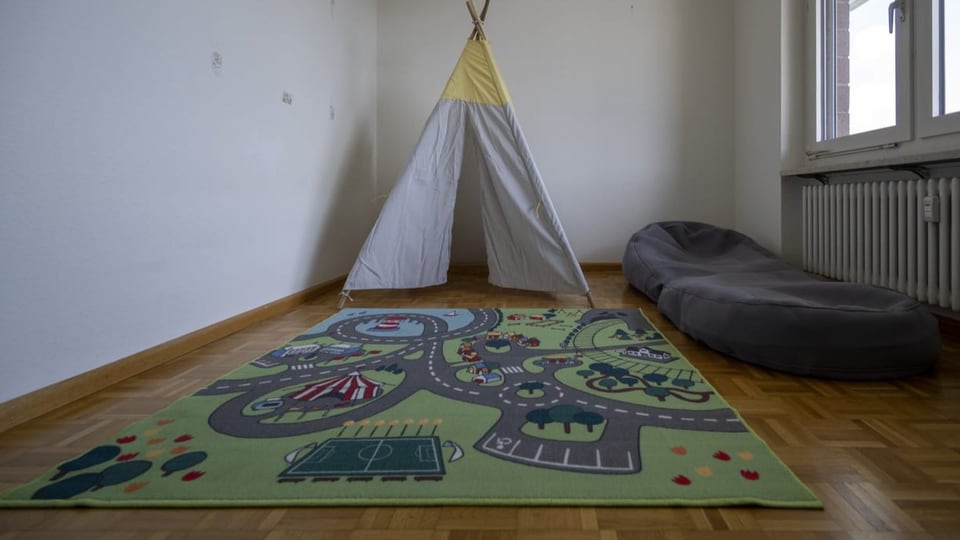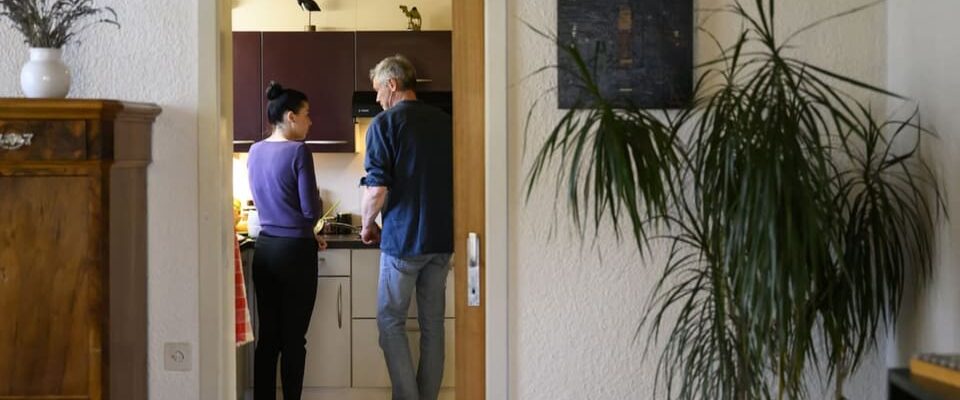contents
The will to help refugees would be there, but the bureaucratic hurdles are high – higher than at the beginning of the war. An example from the canton of Solothurn.
Christian Reinhart is 66 years old, retired, lives in Solothurn. A doer, he likes to help. Since the outbreak of the Ukraine war, he and his wife have been taking in refugees at their home. He recently billeted two new refugees. Only he failed to register them several times. Recording stop, it said.
Legend:
A refugee family is accommodated privately, as here in Tramelan in the Jura. The bureaucracy marathon is not that easy, as a Solothurn example shows.
Keystone/Anthony Anex
At the beginning, 11 people from Ukraine were accommodated in Christian Reinhart’s house: a family of six and their neighbors. They slept in the basement, in his apartment, and in an apartment where Reinhart’s mother used to live. Of the 11 people, only one grandmother still lives here today. Their family has returned to the Ukraine, and the neighboring family has moved to another apartment in Halte.
Refugees accepted again
Now Christian Reinhart has space again and has taken in two new refugees from the Ukraine: a friend of his grandmother’s and a colleague who was allowed to leave the country injured. Both have been here since December. Those who house refugees must register them. This is the only way they have access to social assistance or German courses.
This is frustrating. I’ve been to the registration center four times.
For this, Christian Reinhart has to go to the registration center in Basel. “It’s frustrating. I’ve been to Basel four times. You take a number, wait and wait. When it’s your turn, the counter says: Fingerprints and passport photos are not possible, Solothurn is red.” Red means that the canton of Solothurn has already met its “admission target” for that day. That’s why he can’t register Ukrainians.
Swiss bureaucracy
Aren’t the authorities happy for every bed? Just recently, for example, Aargau declared an asylum emergency. It’s about the distribution key, says Anne Birk, head of the social services department in the canton of Solothurn. Every day, a new calculation is made as to which canton has to take in how many refugees. If a canton has already taken in enough refugees, they are distributed from the federal asylum centers to other cantons.
Only: If refugees are accommodated by private companies, they already have a bed and have already been placed. “It’s a bug in the system. The refugees go where they have friends. Two different distribution keys would probably be needed,” says Christian Reinhart.
Refugees in private homes are not planned
Anne Birk from the canton of Solothurn says that private individuals are not planning to accommodate refugees: “The asylum system does not provide for refugees to be accommodated privately and register retrospectively. The field should not be rolled up from behind.”

Legend:
Take in refugees privately? At the moment, the cantons do not want you to take any action of your own, but to register as a “free place” and wait for an allocation.
Keystone/ Georgios Kefalas
It would be better for private individuals to get in touch when they have free beds so that refugees can be assigned to them. “Otherwise the distribution system between the federal government, canton and municipality will no longer work.” As a person seeking protection, you cannot choose which canton you live in, except for family reunions. Refugee helper Reinhart has little understanding for this. He also knows private individuals who have registered as host families and have not heard from the authorities for months.
There is now a solution for “his” two new refugees. It recently worked on the third attempt at the registration center in Basel. You could be registered. Reinhart caught a day when the federal government still had places available for the canton of Solothurn.
Regional journal Aargau Solothurn/Regional Diagonal, January 16, 2023, 4:30 p.m./5:30 p.m.; buec;jagm;eics
